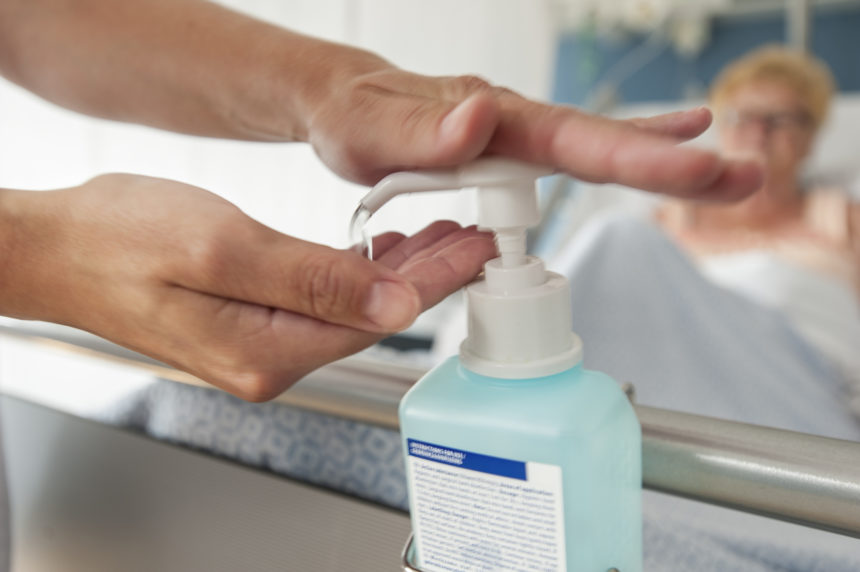
A splash of hand sanitizer is unlikely to halt the spread of influenza in healthcare facilities, according to new research from Japan.
In fact, the type A virus remains infectious in wet mucus from infected patients, even after being exposed to an ethanol-based disinfectant for two full minutes, reported Ryohei Hirose, M.D., Ph.D., Kyoto Prefectural University of Medicine.
“Until the mucus has completely dried, infectious influenza A virus can remain on the hands and fingers, even after appropriate antiseptic hand rubbing,” he said.
The researchers analyzed mucus collected from flu-infected patients and dabbed on human fingers. The goal was to simulate situations in which medical staff could transmit the virus. It took four full minutes of exposure to ethanol-based disinfectant to do the job, they said. The mucus’s thick hydrogel structure kept the ethanol from reaching and deactivating the virus. “The physical properties of mucus protect the virus from inactivation,” explained Hirose.
The bottom line? Operators should be particularly cautious, said Hirose and colleague Takaaki Nakaya, Ph.D., an infectious disease researcher. “If they don’t adequately inactivate the virus between patients, they could enable its spread,” Hirose said.
The findings were published this week in the journal mSphere.



